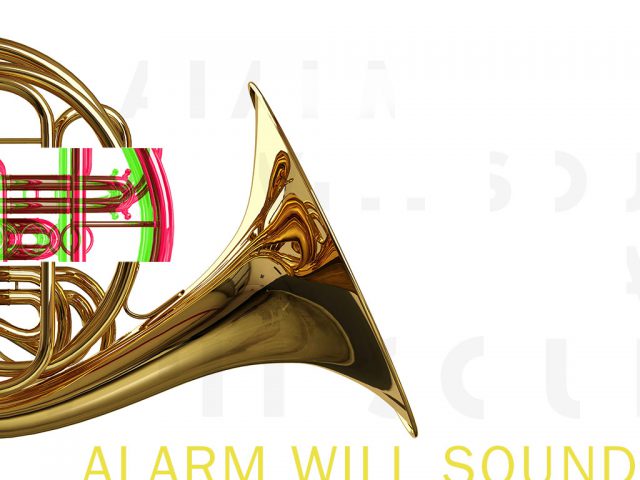
Kaki King will join Alarm Will Sound on stage at Carnegie’s Zankel Hall on April 27 to premiere her new work Other Education, written specially for the occasion. Kaki took the time to answer some questions about the piece:
Michael Clayville: The piece you wrote is for the (post)folk concert of David Lang’s collected stories series. How did the idea of “folk” or “story-telling” influence you as you wrote the piece?
Kaki King: When David invited me to compose this piece we discussed the role of the guitar as a folk instrument and one that has been used to accompany many many stories. I wrote three different tunes that would normally have been played on guitar with no accompaniment, but each had its own pace and feel. They are all in the same guitar tuning and are in the same key, but each has a very different feel. The timbre and the limitations of the guitar are what link them together.
MC: Are there any overt elements of “folk” that you included?/Is there a story you are telling?
KK: Not really, I didn’t think that it would be necessary to make the ‘folk’ or any kind of narrative very obvious. But since I was starting out with an acoustic steel string guitar I think it could be argued that the piece was firmly rooted in folk before a single note was written.
MC: Did you have a particular inspiration or message for Other Education?
KK: Honestly it was a very personal message for me. I haven’t written a note on a staff since college, and even then I only took a handful of music classes. There are huge gaps in my musical education–canyons of missing information really–and I took this incredible opportunity to try and fill a few of these in. So, in this way, the process of writing by itself was all the inspiration I needed. ‘Other Education’ is a reference to the fact that learning to compose for this many instruments in this way was an education for me in itself.
MC: How did you choose to incorporate the guitar in this piece? Does it function as a soloist?
KK: This piece really functions as a guitar concerto. Writing the parts for guitar was quick and easy since that’s been my area of expertise for my entire career, and I was keeping with that ‘folk’ concept and centering the music around the guitar. In the future I’d love to be able to incorporate guitar into an ensemble in a different way.
MC: I noticed your post on twitter of your sketch for part of the piece:
Can you talk about your writing process for this piece?
KK: I transcribed what I had written on guitar onto a score so I could print it out and write ideas around it. I borrowed magic markers from the two year old that lives next door and went to town on the score. Musical ideas come much faster than I can transcribe them, so I used colors and markings to get the ideas in my head down so I could remember what they were before I turned them into exact notes and rhythms.
MC: Do you use your guitar when you compose?
KK: Yes, always. I’ve never written anything not on the guitar. I wrote a lot of the Alarm Will Sound parts on the guitar first and transcribed them.
MC: “blarrraah,” “blrrr?” 🙂
KK: I think those were ideas for brass. Trombones are always making ‘blarrraah’ sounds when they get over stimulated.
MC: Is this your first experience writing for a large ensemble? (Other than “more instruments”) how was it different than writing for smaller groups?
KK: As preparation for this I wrote a two part piece for the string quartet ETHEL. Through this piece I realized how much my transcribing skill level lagged behind my actual musical ideas. But by then I was busy learning how to express a harmonic for a violin and what the range of a bass clarinet was, so it was a lot of information to process in a short amount of time. I did my best but I really see this as just the first step in a long learning process.



